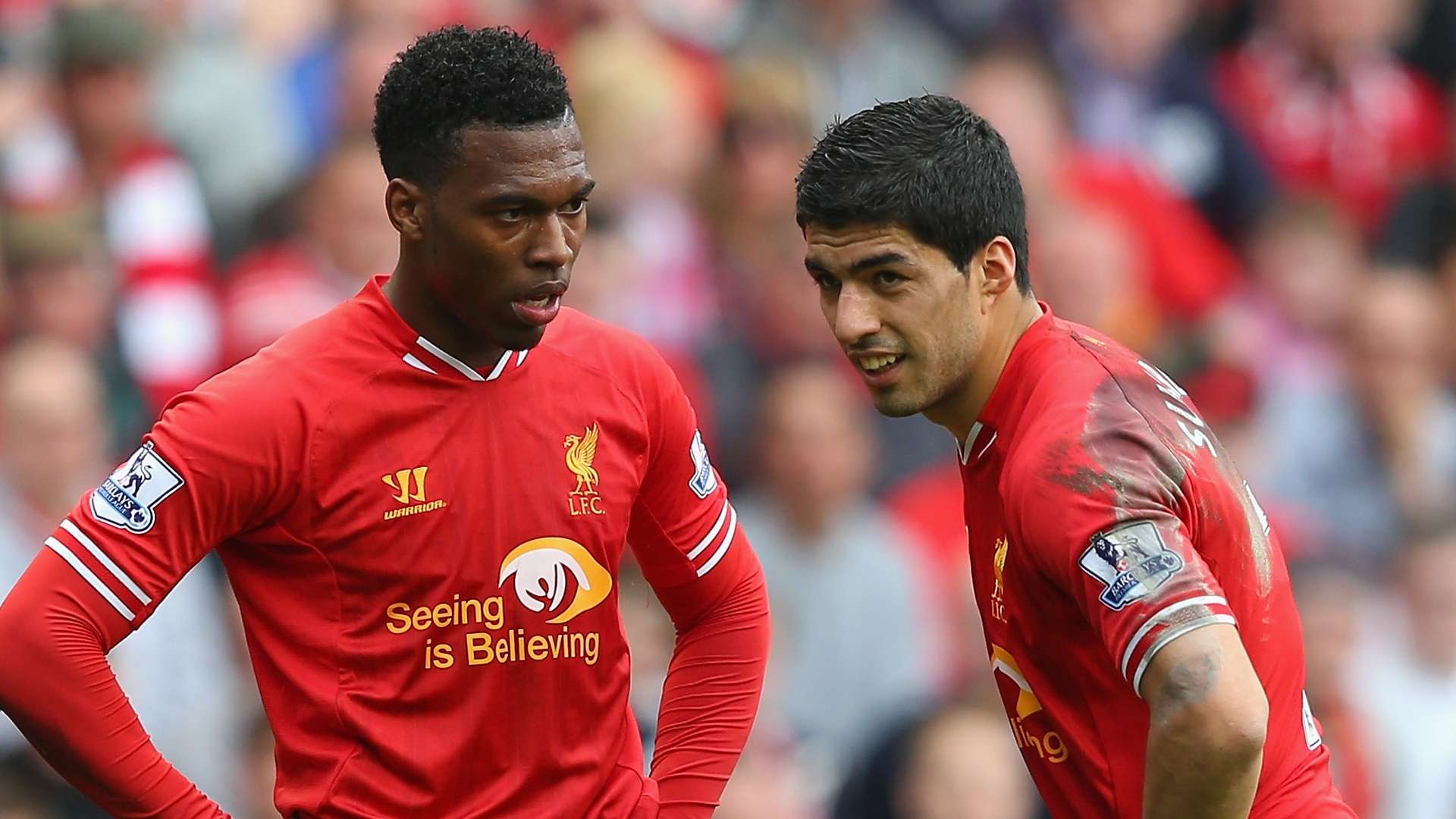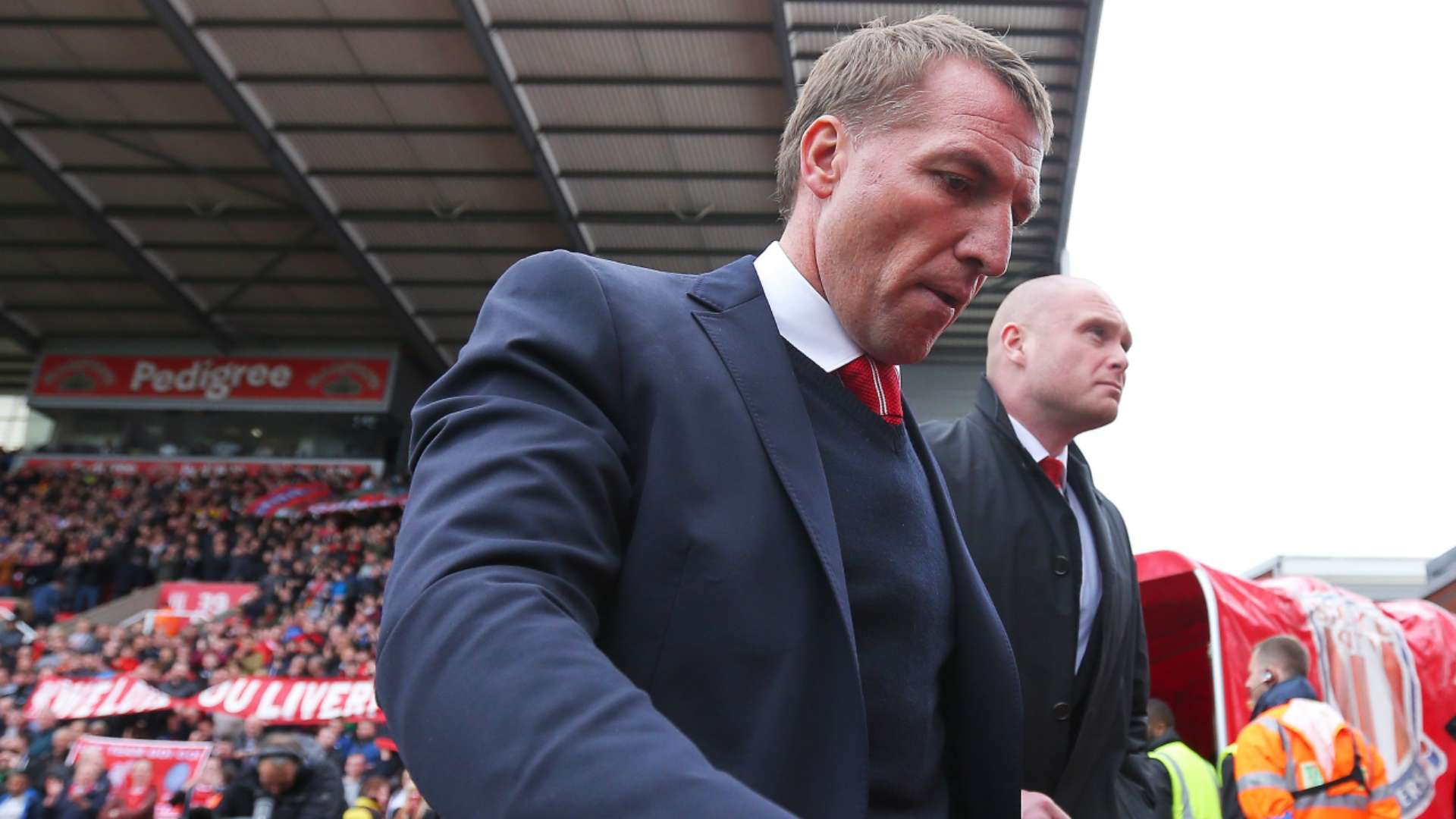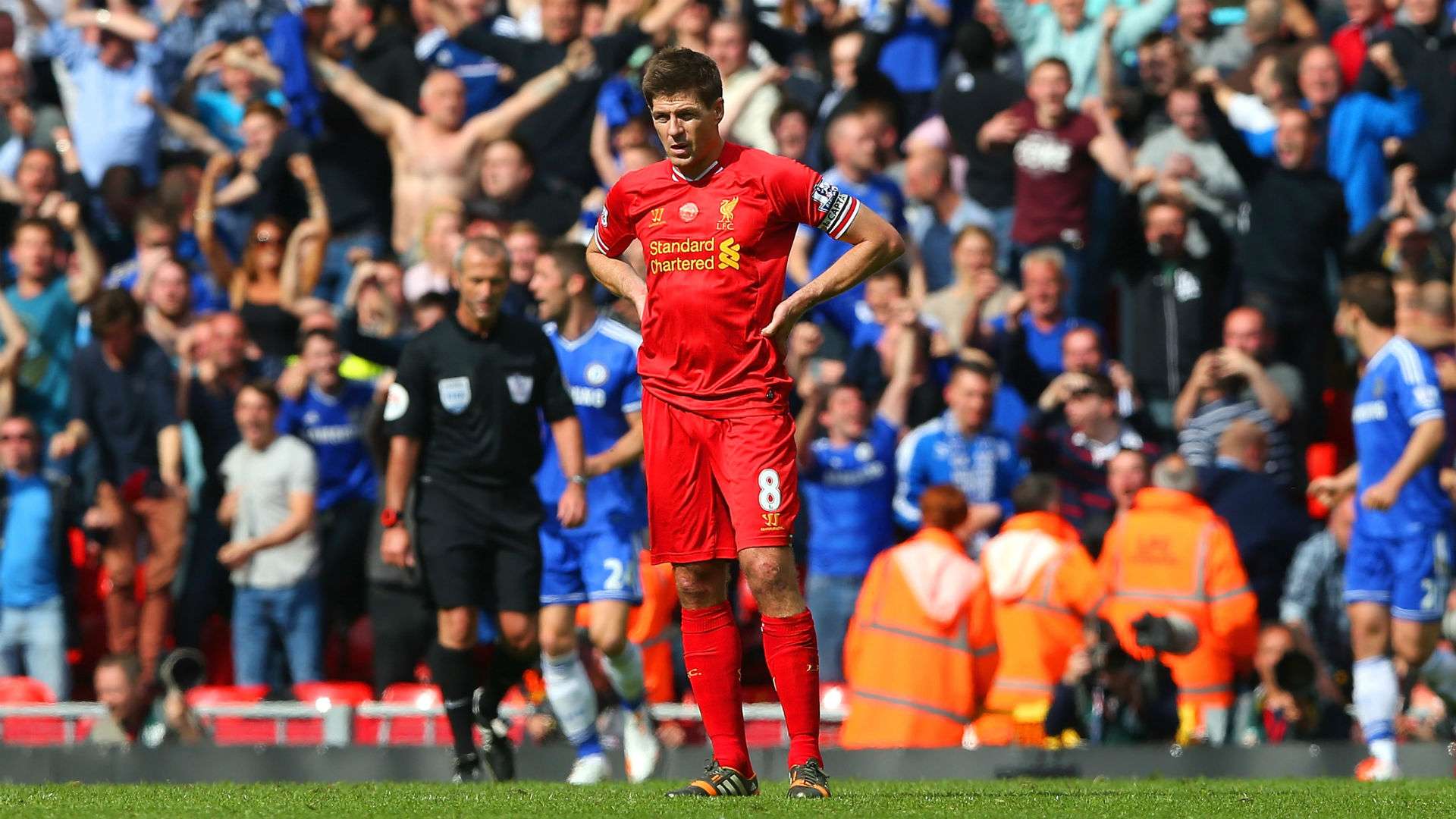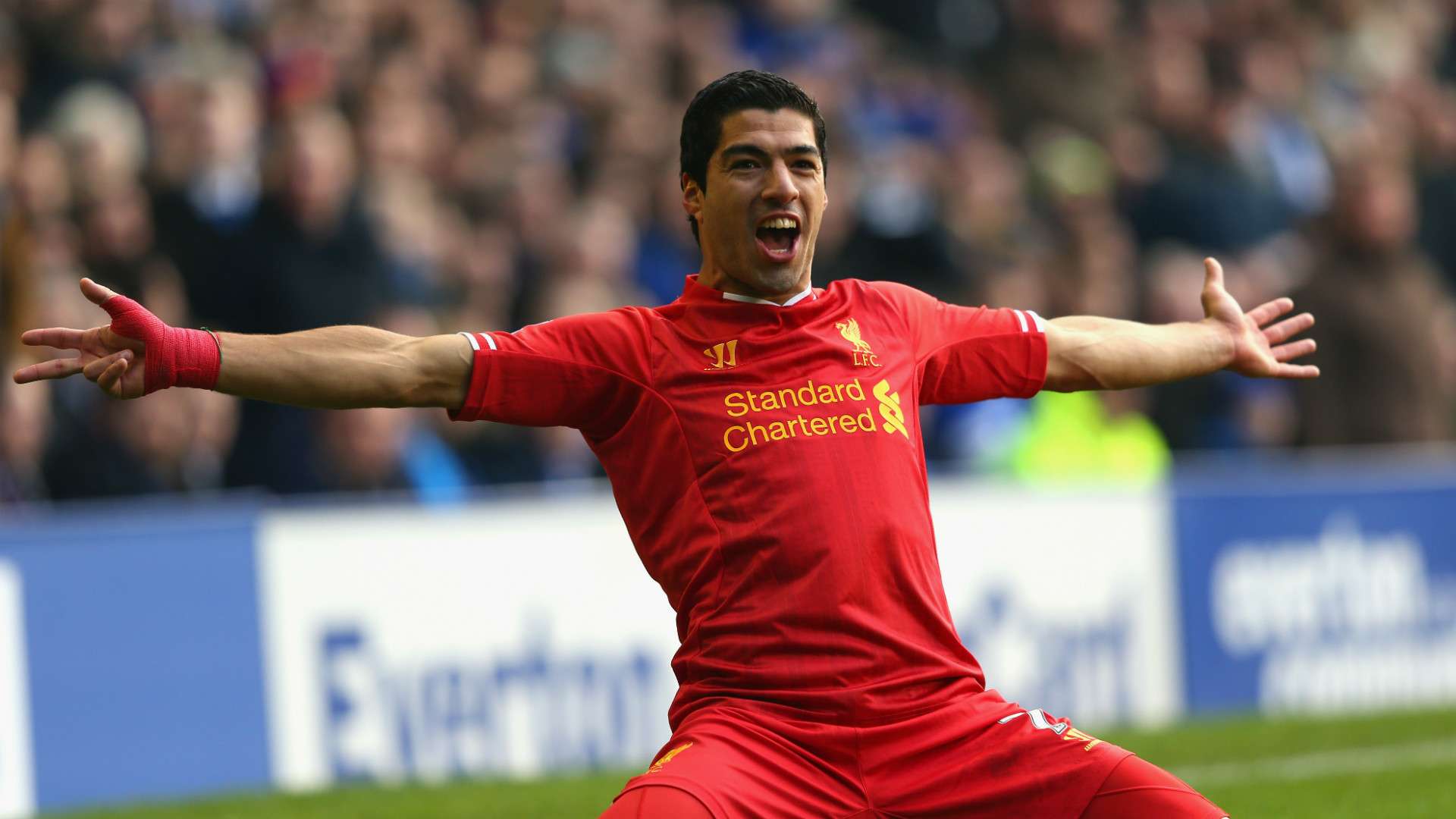Brendan Rodgers has never tried to hide Luis Suarez's importance to his former Liverpool side.
As the Irishman later admitted to Sky Sports, when the striker was sold to Barcelona in 2014, "the whole thing exploded".
With Suarez spearheading the attack, Liverpool had gone agonisingly close to winning a first English top-flight title since 1990.
Without him, they collapsed and Rodgers was eventually sacked in October 2015 – less than 18 months after his rampaging Reds side had finished as Premier League runners-up to Manchester City.
However, the issue was not so much that Liverpool lost Suarez – but that they failed to replace him.
Next Match
Rodgers had wanted Alexis Sanchez. He ended up with Mario Balotelli. Things were never going to work out well.
Indeed, when Rodgers told captain Steven Gerrard that he had decided to gamble on the temperamental Italian forward, the midfielder's first reaction was, "Uh-oh!"
Rodgers has freely admitted that Liverpool were overly reliant on Suarez – but only during the first six months of the 2012-13 season, when the Uruguayan was effectively the only fit forward at the club.
He baulks at the idea that Suarez carried the side that challenged for the title the following year – and rightly so, as it criminally undersells the role both the manager and the rest of the team played in one of the most thrilling campaigns in the club's history.
 Getty
Getty
Suarez was undeniably sensational. He missed the first five games of the season, as he completed his suspension for biting Chelsea defender Branislav Ivanovic in April 2013, yet still claimed the Premier League's Golden Boot, with 31 goals.
What is often overlooked, though, is that Daniel Sturridge finished as runner-up, on 21, and netted just seven fewer than his fellow forward in all competitions.
Gerrard, of course, is remembered for the infamous slip against Chelsea that went a long way towards deciding the title race but he scored as many goals as he created (13 apiece) and finished top of the league's assists charts.
Elsewhere, teenage winger Raheem Sterling netted nine times, while centre-half Martin Skrtel popped up with an impressive seven goals.
In total, Liverpool scored 101 goals that season – the fourth-highest tally in Premier League history – so while Suarez was integral to both the team's attacking approach and their high defensive press, he was greatly aided by those around him.
"Look, his quality and imagination in the final third was amazing but it was the team that flourished," Rodgers rightly pointed out in an interview with The Telegraph last year.
And he deserves his share of the credit for the way in which he not only kept Suarez at Anfield until 2014, but also then drew the very best out of such a combustible character.
After all, from the moment Rodgers had arrived on Merseyside, the striker was being linked with other clubs. In 2012, a transfer to Juventus was in the offing. The following year, Suarez was pushing for a move to Arsenal.
"We were able to talk him around into staying, and told him that the team would be built around him and his qualities," Rodgers subsequently told The Coaches' Tribune.
Suarez, for his part, took to the former Swansea boss right away, impressed with his footballing philosophy, man-management and tactical acumen, and also by the fact that in their first meetings, Rodgers spoke Spanish with him.
"If it were not for Brendan, then I know I would not be the same player that you see at Barcelona today," the attacker told reporters in 2016. “Such a big part of my education is down to him and his management.
-
Mythbuster: Would Messi really struggle in the Premier League?
-
Mythbuster: 'Penaldo'! Are most of Cristiano's goals spot-kicks?
-
Mythbuster: Did Maradona win the World Cup on his own?
-
Mythbuster: Zidane is a lucky coach - not a great coach?
"He helped me with my runs, arriving in the area at the right time and coming in from wide, which benefited my confidence.
“We worked hard on finding ways I could isolate players and then try to beat them, man on man. That was the only way I could succeed in England.
“I wasn’t proven and I had to adapt to the Premier League, which Brendan knew. He knows all about English football and he educated me to become successful.”
Rodgers, of course, made many mistakes during his time at Anfield, which ultimately contributed to his eventual dismissal.
He clashed with Michael Edwards over transfers and upset the club's American owners by publicly criticising the recruitment policy.
The decision to prioritise a Premier League game at Chelsea and thus pick a second-string squad for a Champions League group game at Real Madrid also backfired badly.
Not only did Rodgers lose both games, he also lost the support of many fans, who take great pride in the club's European record and were, thus, horrified by what was essentially the raising of the white flag at the Santiago Bernabeu.
 Getty
Getty
However, he played a pivotal role in what was a surprise title challenge in 2013-14. This was not a vintage Liverpool squad, after all; "totally inferior" to Jurgen Klopp's current panel of players, as Luis Suarez recently put it. A fading Kolo Toure, Mamadou Sakho, Simon Mignolet and Aly Cissokho all featured prominently.
The starting XI may have been brimming with attacking brilliance but the backline was still coming to terms with the retirement of club legend Jamie Carragher. Tellingly, Skrtel was Liverpool's most reliable centre-back and the defence shipped 50 goals that season.
Even up front, there were issues, with Iago Aspas the only 'centre-forward' in the squad other than Sturridge and Suarez, which prompted Rodgers to occasionally deploy Sterling through the middle to impressive effect.
And that essentially summed up Rodgers' contribution; he made the most out of the talent he had at his disposal.
He played a pivotal role in the development of Philippe Coutinho, who hit five goals in the league, including a late winner in the 3-2 victory over City that put Liverpool within touching distance of the title, while he also helped left-back Jon Flanagan become an England international.
Rodgers' squad lacked strength in depth while the starting line-up was top heavy but he still fielded a wonderfully offensive side renowned for blistering starts in which they would strike early and repeatedly.
In the 5-1 victory over Arsenal that sparked their remarkable 10-game winning streak that propelled them to the top of the table and to within seven points of the title, Liverpool went 4-0 up inside 20 minutes.
In addition, they averaged 3.8 goals a game during that run, with Gerrard striking seven times – the same number as Suarez – and Sterling and Sturridge bagging six apiece.
The 2-0 loss to Chelsea on April 27 obviously changed everything – for Gerrard, Suarez, Rodgers and everyone involved.
 Getty
Getty
Gerrard, in particular, was traumatised by the slip which allowed Demba Ba to open the scoring against the run of play just before half-time, admitting later in his autobiography that he struggled to stop crying on the journey home.
Meanwhile, a bitterly frustrated Rodgers was left lamenting Jose Mourinho's defensive tactics, the Blues' cynical time-wasting, and the absence of Jordan Henderson through suspension, with the underrated midfielder having been sent off in the dying seconds of the City win.
The manager insisted that Liverpool would "recover" but that side never would.
Suarez left at the end of the season, Gerrard and Sterling followed the year after, while Sturridge's career was ravaged by injuries. Rodgers, meanwhile, was sacked after a dismal start to the 2015-16 campaign.
It was at that point that history began to be rewritten, with many claiming that Rodgers had merely ridden on the coattails of a sensational Suarez. Liverpool's title challenge had been a team effort, though.
Nobody will ever forget Suarez's brilliance. Or Gerrard's slip.
But the role that Rodgers and the rest of a thrilling team played in that dramatic campaign should not be forgotten either.


